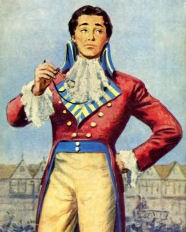 Ok, so if everything goes according to plan, I should wrap up my summer reading challenge by the beginning of next week. Here's a look at what I'll be reading this fall and what reviews you can expect here on Complete & Unabridged:
Ok, so if everything goes according to plan, I should wrap up my summer reading challenge by the beginning of next week. Here's a look at what I'll be reading this fall and what reviews you can expect here on Complete & Unabridged:Never Let Me Go by Kazuo Ishiguro- Having loved The Remains of the Day, I've had this 2005 novel of Ishiguro's on my reading list for awhile. With the new movie version due out later this year, I figured it was time to actually read it. The story revolves around three friends (Kathy, Ruth, and Tommy) who are growing up in a sheltered boarding school with little to no contact with the outside world. Only after they become adults do they discover the reason for this seclusion and the reality of their own fate.
Anna and the King of Siam by Margaret Landon- This is a semi-fictionalized account of Anna Leonowens' time in the court of the King of Siam. It was this version that was used to create the many film versions of the story including The King and I.
My Cousin Rachael by Daphne DuMaurier- I absolutely LOVED Rebecca and I'm really looking forward to this story as well. When Philip Ashley meets his beautiful cousin (by marriage), he falls head over heels for her. But as their relationship develops, things become unsettling for him. Does Rachael really care for him, or is he merely a tool in her much larger scheme?
Agnes Grey by Anne Bronte- It should come as no surprise to my readers that a Bronte novel appears on my list. Reading a Bronte novel in the fall has become a bit of a tradition. Having read The Tenant of Wildfell Hall and Villette the past two years, I'm now moving on to Anne's other novel. This one is similar to Jane Eyre in that it follows the plight of a young governess as she struggles to find love and acceptance in the world.
Flower Drum Song by C. Y. Lee- I absolutely love the Broadway version of this story, so I'm really excited about reading the original story. Wang Ta is a young Chinese-American living in San Francisco in the 1950s. Throughout the story, he struggles to find his identity, wondering if he should continue in the traditional Chinese ways (like his father), or cast them off and embrace the American way of life.
Mrs. Frisby and the Rats of NIMH by Robert C. O'Brien- This is a classic children's story that I never actually made it around to as a kid. Mrs. Frisby is a widowed field mouse whose house and family are in mortal danger. In order to save them, she enlists the help of laboratory rats who have created a society beyond anything she has ever known.
So, that is what's on tap for this fall. With any luck I'll finish these pretty quickly and be able to add some more before the end of the year. If you have any suggestions for me, please leave them in the comment section.



























